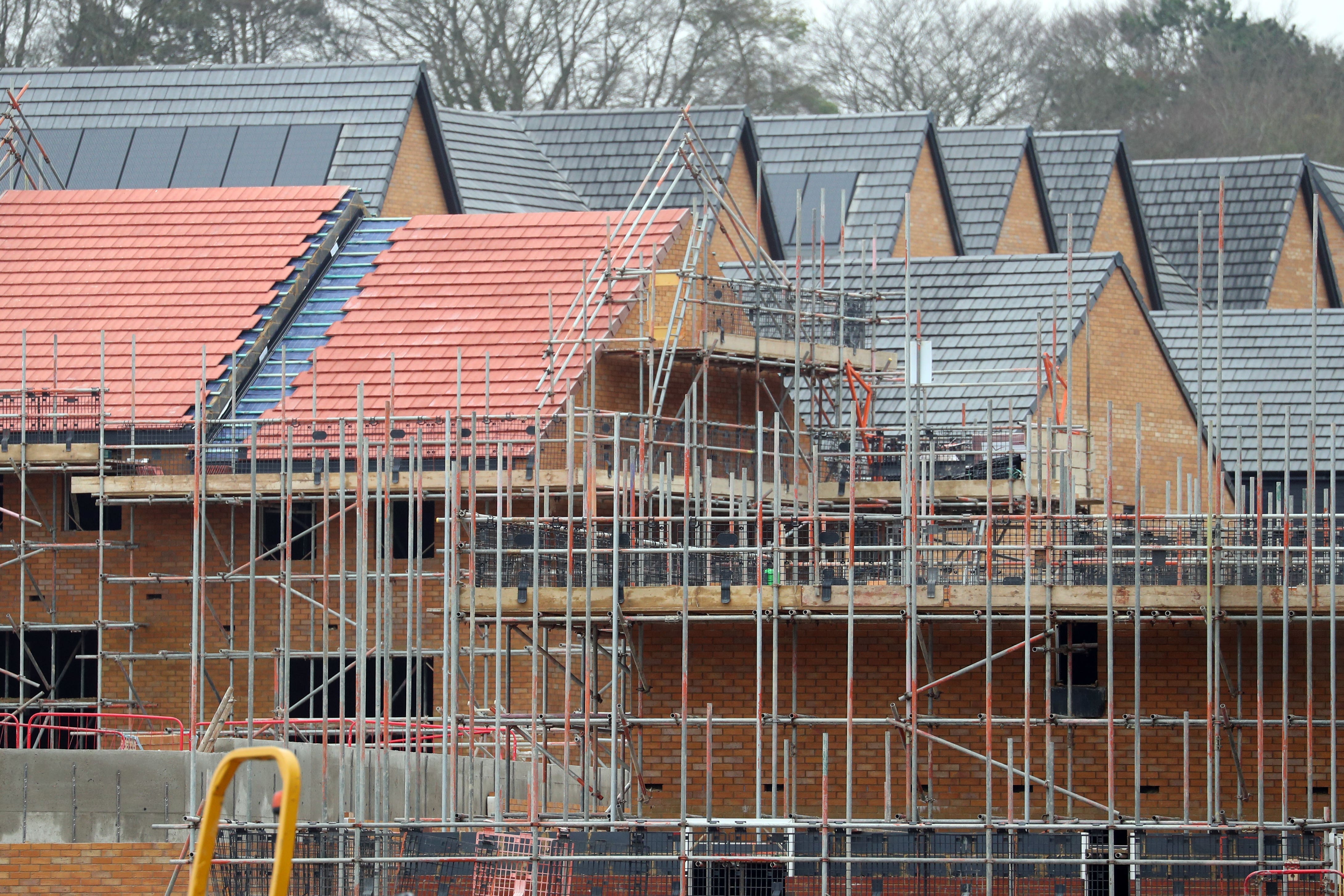UK construction sector faces ‘difficult period’ after 4,370 firms collapsed
The sector has experienced the highest number of bankruptcies of any industry in the UK for the past three years.

Your support helps us to tell the story
From reproductive rights to climate change to Big Tech, The Independent is on the ground when the story is developing. Whether it's investigating the financials of Elon Musk's pro-Trump PAC or producing our latest documentary, 'The A Word', which shines a light on the American women fighting for reproductive rights, we know how important it is to parse out the facts from the messaging.
At such a critical moment in US history, we need reporters on the ground. Your donation allows us to keep sending journalists to speak to both sides of the story.
The Independent is trusted by Americans across the entire political spectrum. And unlike many other quality news outlets, we choose not to lock Americans out of our reporting and analysis with paywalls. We believe quality journalism should be available to everyone, paid for by those who can afford it.
Your support makes all the difference.The UK construction sector is facing an “immensely difficult period” after 4,370 construction companies went bust over the past year, according to new data.
The sector has experienced the highest number of bankruptcies of any industry in the UK for the past three years, according to auditing firm Mazars.
In the year to the end of November, 4,370 companies went insolvent compared to 4,086 in 2021/22 and 2,481 in 2020/21.
This reflected a 7% increase in insolvencies from 2021/22 and 76% in 2020/21 due to high material and labour costs.
The auditing company said that the increasing costs of borrowing have affected the profit margins of ongoing and upcoming development projects.
Moreover, the surge in mortgage rates, which have reached a 15-year high, has resulted in a decline in consumer confidence. This has led to a decrease in prices after dramatic rises for residential housing over recent years.
Mark Boughey, a partner at Mazars, said: “There are now on average a dozen building companies going under every single day in the UK. This is an immensely difficult period for the construction sector.
“One problem is that the commercial viability of a lot of today’s projects were assessed three or four years ago, with fixed price contracts often being negotiated – since then, costs have spiralled, while buyers’ appetite has taken a dive.
“Construction contractors operate on very tight margins at the best of times – the sector is really being squeezed at both ends right now.”
Over the last 12 months, bankruptcies in the construction sector were mainly caused by specialised activities such as demolition, electrical and plumbing – which accounted for 58% of all bankruptcies.
A “well-regarded” construction firm, Kenham Building, recently went into administration due to financial losses on a residential refurbishment project that faced technical groundworks, leaving all staff jobless.
On January 9, ReSolve, a business advisory firm, was appointed as joint administrator of the construction company that specialised in high-end residential buildings.
Chris Farrington, a partner at ReSolve, said: “It is unfortunate to see a business with a strong trading history, and a portfolio of superb construction projects completed over the course of many years, encounter the difficulties experienced by Kenham Building.
“It is also particularly regrettable that staff were not able to be retained through this process, a reflection of the extremely challenging conditions being experienced not only by Kenham but the wider construction and homebuilding sector.”
Mazars now predicts that difficulties in the sector will persist through 2024/25.
Mr Boughey said: “We saw a number of bigger contractors filing for insolvency 12 to 18 months ago and now those failures are being felt downstream in the supply chain.
“Sub-contractors aren’t getting paid on time or to the agreed levels and, as a result, are now starting to experience their own financial problems.
“The impact of failures in the sector cuts both ways though – when smaller companies fold, it can cause major delays for the main developers in completing projects.
“Whilst some of the headwinds around increasing borrowing costs and material prices have eased, we’re unfortunately likely to see these difficulties persist through 2024 and into 2025.”
Mark Allen, chief executive officer of the UK’s largest property development company Landsec, told the PA news agency: “Inevitably, when you go through cycles – such as the one we are in the moment – and you see very rapid inflation in costs that squeezes margins all the way through the supply chain, that can catch some people out.
He emphasised the importance of Landsec planning ahead for tough periods and said that it is “normal” for firms to enter insolvency.
“I think it does make it even more important for us and people like us to make sure we understand the expertise, the financial capacity of the supply chain that we’re working with,” he added.